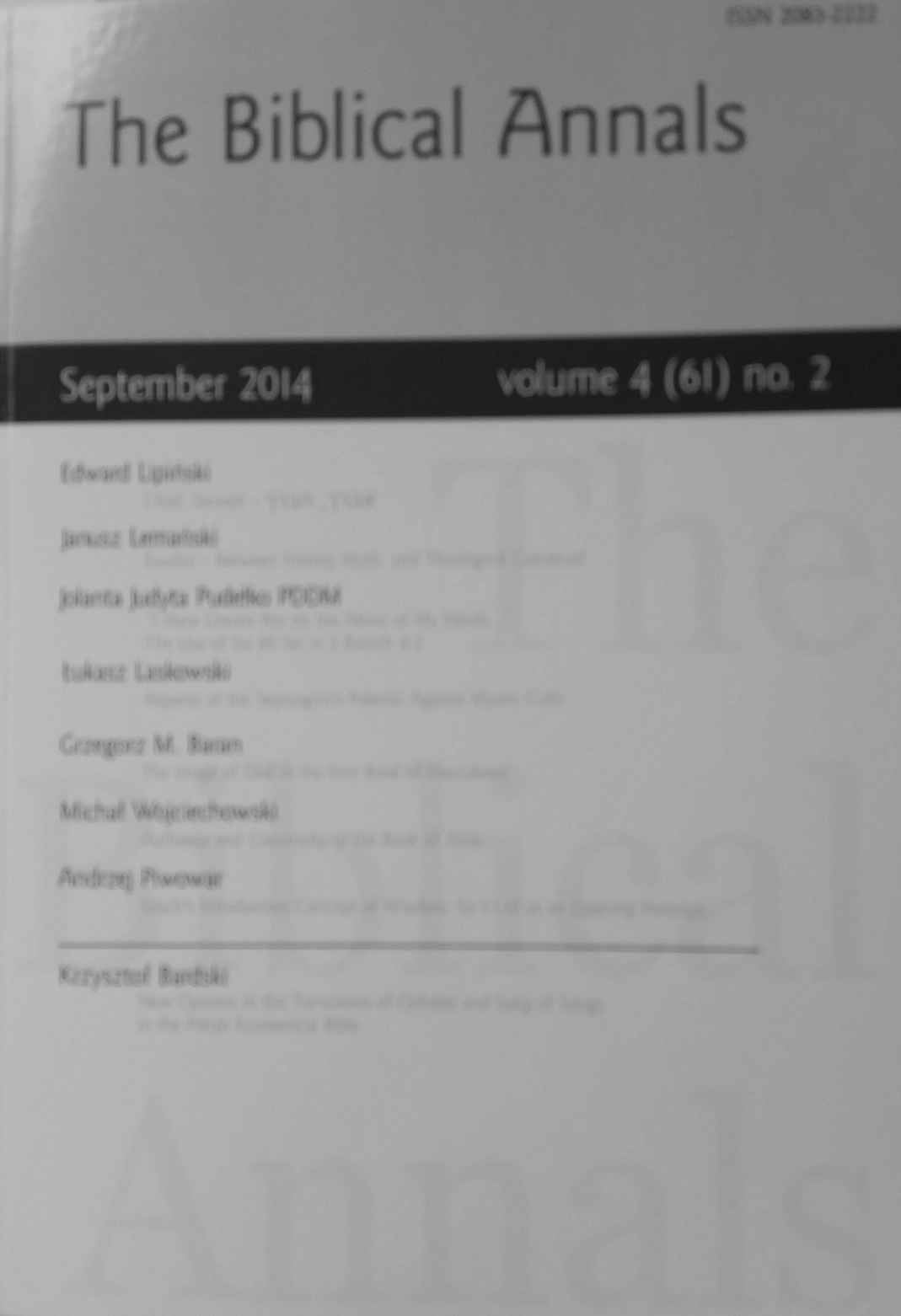Nowe ujęcia translatoryczne w przekładach Księgi Koheleta i Pieśni nad Pieśniami w Biblii Ekumenicznej.
New Options in the Translation of Qohelet and Song of Songs in the Polish Ecumenical Bible.
Author(s): Krzysztof BardskiSubject(s): Language and Literature Studies, Jewish studies, Theology and Religion
Published by: Katolicki Uniwersytet Lubelski Jana Pawła II - Wydział Teologii
Keywords: Ecumenical Bible; Bible translations in Polish; Qohelet; Song of Songs;
Summary/Abstract: The article presents the new ecumenical polish translation of the Scripture and focuses on its original aspects. The author of the article translated the books of Qohelet and Song of Songs in the Ecumenical Bible. The main newness in the book of Qohelet was a translation of the motto of the book. The traditional “vanity of vanities” was interpreted according to the Hebrew etymology connected with wind and vapor, using at the same time an adjectival form. Literally it could be expressed in English: “evanescent, how evanescent – says Qohelet – everything is so evanescent”. Another newness is the interpretation of the Hebrew re’ut ruach as “similar to the wind” based on the interpretation of the word re’ut in connection with the verbal root resh-ayin-hei. Also we propose, on the base of some semantic and intertextual analyses, a new interpretation of the passage considered misogynic of Qoh 7,27-28: “Behold, I have discovered this, says Qohelet, comparing one women with another to find an explanation. I am not able to understand even the one whom I love with all my heart. I am able to understand one man among a thousand, but I am not able to understand any woman among all these”. In the translation of the Song of Songs, instead of the traditional marginal notes “bride” and “bridegroom” introducing the speeches of different characters, we choose simply “she” and “he”.
Journal: The Biblical Annals
- Issue Year: 4/2014
- Issue No: 61/2
- Page Range: 451-459
- Page Count: 9
- Language: English, Polish

